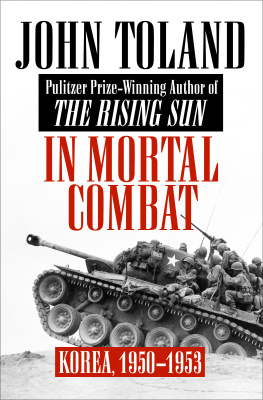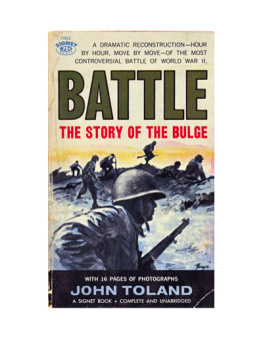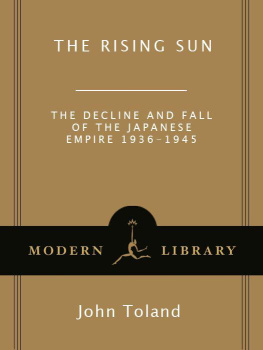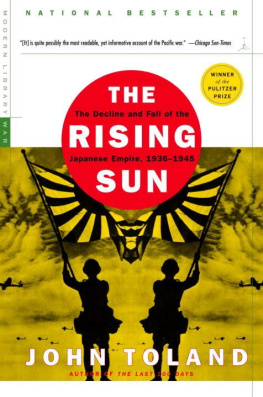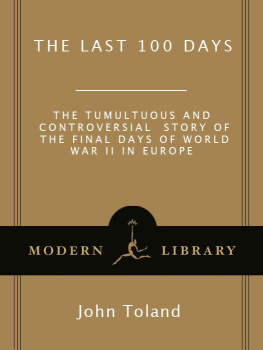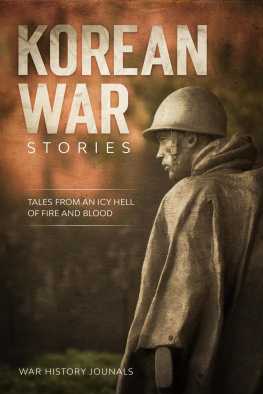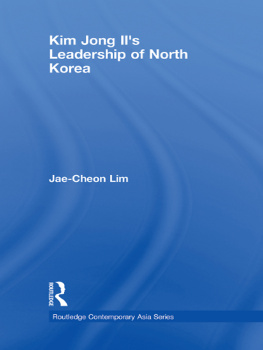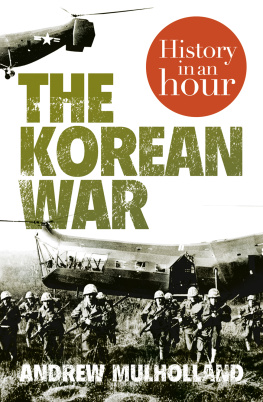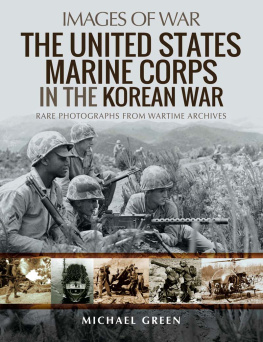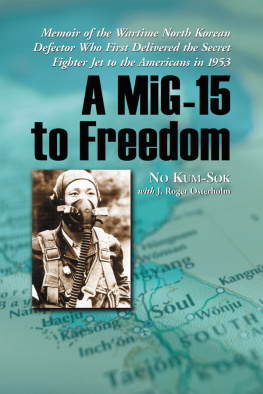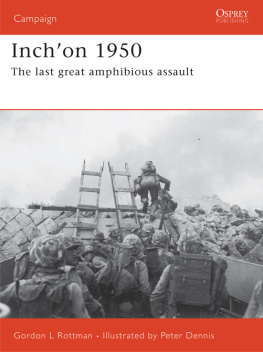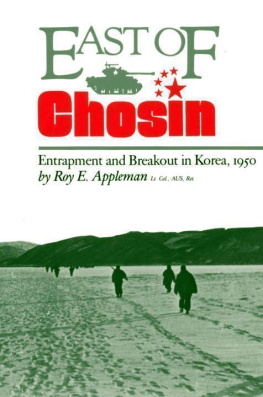John Toland - In Mortal Combat: Korea, 1950-1953
Here you can read online John Toland - In Mortal Combat: Korea, 1950-1953 full text of the book (entire story) in english for free. Download pdf and epub, get meaning, cover and reviews about this ebook. year: 1991, publisher: William Morrow & Co, genre: History. Description of the work, (preface) as well as reviews are available. Best literature library LitArk.com created for fans of good reading and offers a wide selection of genres:
Romance novel
Science fiction
Adventure
Detective
Science
History
Home and family
Prose
Art
Politics
Computer
Non-fiction
Religion
Business
Children
Humor
Choose a favorite category and find really read worthwhile books. Enjoy immersion in the world of imagination, feel the emotions of the characters or learn something new for yourself, make an fascinating discovery.
- Book:In Mortal Combat: Korea, 1950-1953
- Author:
- Publisher:William Morrow & Co
- Genre:
- Year:1991
- Rating:4 / 5
- Favourites:Add to favourites
- Your mark:
- 80
- 1
- 2
- 3
- 4
- 5
In Mortal Combat: Korea, 1950-1953: summary, description and annotation
We offer to read an annotation, description, summary or preface (depends on what the author of the book "In Mortal Combat: Korea, 1950-1953" wrote himself). If you haven't found the necessary information about the book — write in the comments, we will try to find it.
In Mortal Combat: Korea, 1950-1953 — read online for free the complete book (whole text) full work
Below is the text of the book, divided by pages. System saving the place of the last page read, allows you to conveniently read the book "In Mortal Combat: Korea, 1950-1953" online for free, without having to search again every time where you left off. Put a bookmark, and you can go to the page where you finished reading at any time.
Font size:
Interval:
Bookmark:

In Mortal Combat
Korea, 19501953
John Toland

To all those who were there
Contents
Preface
Why a history of the Korean War? After two cataclysmic world conflicts it appeared to be lackluster in global importance and dramatic interest. At the time I shared the popular dislike of this war. Drained by World War II, I, like so many Americans, blocked out the three tedious years of this struggle. Our interests were in our own recovery and that of Europe, not dangerous involvement in the Orient.
After reading numerous accounts and interviewing many participants in the United States, Great Britain, Korea, Japan, Taiwan and the Peoples Republic of China, I came to understand that this war was unique in our history. Acting quickly, in an effort to stop world communism, President Harry Truman had entered the conflict without declaring war, calling it a police action. He persuaded the reluctant United Nations to approve his action, and fifteen nations joined America in battling North Korea and China. Four million human beings, half of them civilians, died in a brutal contest marked by atrocities on both sides, raging up and down a peninsula the size of Utah.
For the first year a series of disastrous American defeats preceded outstanding victories such as MacArthurs surprise amphibious landing at Inchon. Then, with peace in sight, Truman insisted on voluntary repatriation of all prisoners of war, and for the next two years men fought and died in vast numbers, with little exchange of terrain, while the negotiations dragged on.
This phase of the war has usually been dealt with briefly, but in fact, another fierce war was going on within the prison camps of both sides. Here again were high drama and high stakes. During this frustrating period some American leaders wanted to use atomic weapons, and there was fear that a nuclear holocaust would result.
When an armistice was finally signed in 1953, none of the issues that started the war had been settled. It left only a legacy of hate and division, and today ten million Korean people are still separated from their families by a demilitarized zone vigilantly protected by both sides.
The first war America never won, the Korean War left the United States politically embittered. It also accelerated European rearmament and boosted military budgets, and established the dangerous precedent of a president conducting an undeclared war without constitutional sanction under the guise of a police action.
This book is an attempt to throw light on numerous controversial matters. Was Truman correct in believing that the Soviet Union and Communist China conspired to start the war? Are recent historians right in asserting that America instigated the war, using the South Koreans as puppets? Was Trumans insistence on voluntary repatriation of prisoners of war valid? Were the persistent Communist claims that the United States had waged biological warfare true? Or had captured American fliers been brainwashed into confessing they had dropped infected bombs? And, finally, was the war worth fighting?
The Korean War was a memorable saga of human tragedy and courage replete with heroes on both sides, an unforgettable epic of world consequence. I hope my efforts here make amends for my lack of vision in 195053.
List of Maps
PROLOGUE
Tools of History
Koreas long and checkered history has been determined by its location at the crossroads of East Asia. Local wars for power were the rule until finally, in the seventh century B.C., the kingdom of Silla gained control with the help of the neighboring Chinese, who managed to impose their Confucian system of social relationships on the Korean people. They also bequeathed a rich legacy of ethics, arts and literature that endured for thousands of years despite numerous invasions by barbarians and visitations by Westerners.
When they arrived in the middle of the nineteenth century to trade, these Westerners failed to understand the Confucian father-son relationship between China and Korea and assumed Korea was a vassal state. The Japanese, however, understood and were determined to make this strategic peninsula part of the growing Japanese empire. In 1910, they annexed Korea and with ruthless force turned it into a semiindustrialized Japanese colony. A school system was established which created an efficient work force and turned many of the brightest young Koreans into officers of the Japanese army. Several attempts at rebellion were crushed, and soon after Pearl Harbor Day, the Japanese converted Korea into an important military base.
The peninsula of Korea, jutting from northeast Asia towards Japan, was mountainous, with only about twenty percent of the land arable. It was perhaps their topography and hardy life that made Koreans different from the Chinese and Japanese. They took pride in their physical endurance, reacted violently to challenge and could be both sweetnatured and aggressive. Yet even under the most adverse circumstances they retained a sense of humor. They were often called the Irish of the Orient.
After thirty-three years of being exploited by the Japanese, Korean patriots finally got encouragement from the outside world. In 1943, Roosevelt, Churchill and Chiang Kai-shek stated in the Cairo Declaration that they were determined Korea shall become free and independent. But Roosevelt told Stalin, at Yalta, that it would take twenty to thirty years before Korea would be ready for complete independence. After the surrender of the Japanese, President Truman suggested that the Soviets receive the surrender of those Japanese forces north of the 38th parallel and that the Americans receive the surrender of those to the south. This seemingly innocuous agreement not only ended the Koreans long-cherished dream of independence, but it also turned a homogenous people into implacable enemies.
The rigid parallel stretched across the country, arbitrarilythe antithesis of a natural boundary. The American zone contained only about forty-two percent of the land but two thirds of the total population of thirty million; it was primarily a farming area and furnished food to the North. The Soviet zone was rich in mineral deposits and provided most of the manufactured goods needed by the South. It also possessed the countrys only petroleum processing and cement plants, and its hydroelectric works, built by the Japanese, were among the best in the world. Consequently, the South depended largely on the North for its electric power.
The ending of World War II brought an inevitable shift in the balance of international power, with the Soviets and Americans no longer allies but bitter foes in a suicidial ideological conflict. Unfortunately for the Koreans, their country was one of the prizes. The selection of the 38th parallel as the unnatural boundary between North and South incited Koreans on both sides. The Soviets acted quickly and sealed the border at the 38th, cutting off almost all traffic into and out of North Korea.
Now, suddenly, there were two Koreas. President Truman, in an about-face after his agreement with the Russians, angrily announced in July 1946 that Korea was an ideological battleground on which our entire success in Asia depends. Secretary of State George Marshall tried in vain the following spring to come to terms with the Russians, and in September, the United States laid the issue before the United Nations. The UN General Assembly voted for an all-Korea election and named a nine-nation UN Temporary Commission on Korea (UNTCOK) to supervise it. All foreign troops would then be withdrawn after a legal government was formed. The Soviets, however, not only opposed general elections but refused to permit UN observers to enter North Korea. Instead, they proposed that all foreign troops be withdrawn from Korea in early 1948. On May 10, over ninety-two percent of the registered voters in South Korea elected representatives to a National Assembly. On August 15, Syngman Rhee was elected the first President of the Republic of Korea.
Font size:
Interval:
Bookmark:
Similar books «In Mortal Combat: Korea, 1950-1953»
Look at similar books to In Mortal Combat: Korea, 1950-1953. We have selected literature similar in name and meaning in the hope of providing readers with more options to find new, interesting, not yet read works.
Discussion, reviews of the book In Mortal Combat: Korea, 1950-1953 and just readers' own opinions. Leave your comments, write what you think about the work, its meaning or the main characters. Specify what exactly you liked and what you didn't like, and why you think so.

